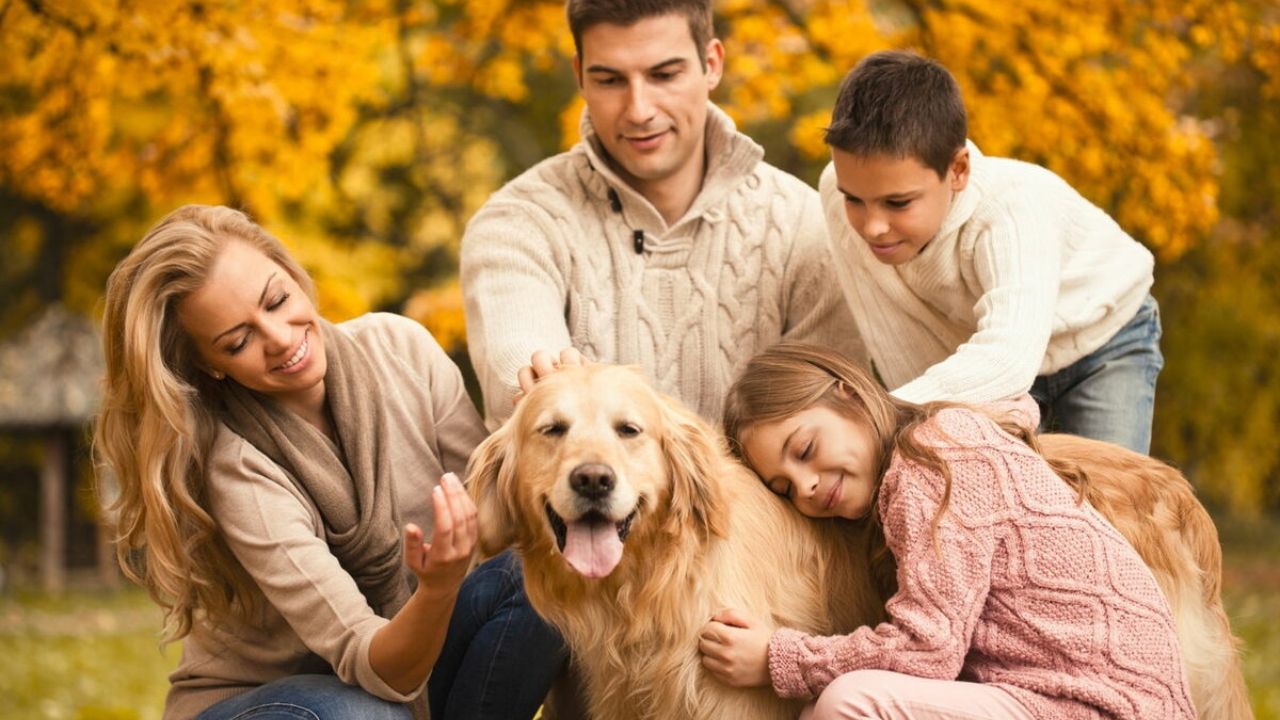
In the realm of pets, few things bring as much joy and warmth to a family as a good-natured dog. These loyal companions can be a source of endless happiness, but choosing the right breed is crucial. In this guide, we’ll explore the characteristics that make a dog family-friendly, popular breeds for households, training tips, and the numerous benefits of having a canine friend.
Characteristics of Good-natured Family Dogs Temperament

Calm and Gentle
Good-natured Family Dogs exhibit a calm and gentle demeanor, making them ideal companions for children and adults alike. Their patient nature allows for a harmonious coexistence within the family unit.
Playful and Energetic
Balancing calmness with playful energy, these dogs are always ready for a game of fetch or a run in the park. Their enthusiasm adds vibrancy to the household, promoting an active and healthy lifestyle.
Social Compatibility
Interaction with Children
A good-natured Family Dogs should be comfortable around children, showing tolerance and affection. Dogs that naturally bond with kids contribute to a nurturing and protective family environment.
Compatibility with Other Pets
For families with other pets, it’s essential to choose a dog that can peacefully coexist. Compatibility ensures a harmonious household where all members, furry or not, get along.
Popular Breeds for Families
Labrador Retriever
Known for their friendly disposition, Labrador Retrievers are excellent family dogs. Their intelligence and eagerness to please make them easy to train, while their affectionate nature endears them to all family members.
Beagle
Due to their sociability, beagles are excellent playmates for kids. Families in homes and apartments often choose them because of their pleasant nature and small size, which allow them to fit into a variety of living areas.
Golden Retriever
Golden Retrievers are renowned for their loyalty and patience. With a gentle temperament and a love for socializing, they seamlessly integrate into family life, providing companionship for both kids and adults.
Bulldog
Despite their tough appearance, Bulldogs are affectionate and gentle, making them surprisingly good family dogs. Their low energy levels and adaptable nature make them suitable for various family dynamics.
Training and Socialization
Basic Obedience Training
Establishing a foundation of obedience is crucial for a family dog. Basic commands such as sit, stay, and come not only ensure a well-behaved pet but also contribute to a safe home environment.
Exposure to Various Environments
Introduce your dog to different environments and experiences early on. This exposure helps build confidence and minimizes anxiety, creating a well-adjusted and friendly family companion.
Importance of Socializing from a Young Age
Socialization is key to a dog’s ability to interact positively with people and other animals. Early socialization sets the stage for a well-mannered and adaptable family pet.
Maintaining a Healthy Environment
Regular Exercise
All dogs, regardless of breed, benefit from regular exercise. Daily walks, playtime, and mental stimulation contribute to a happy and healthy family dog.
Balanced Diet
A nutritious and balanced diet is vital for a dog’s overall well-being. Consult with a veterinarian to determine the best dietary plan for your family dog based on breed, age, and health considerations.
Routine Veterinary Check-ups
For preventive care, routine veterinarian examinations are necessary.
Timely vaccinations, dental care, and addressing any health concerns promptly ensure a long and healthy life for your family pet.
Tips for Choosing the Right Dog for Your Family
Assessing Family Lifestyle
Consider your family’s lifestyle when choosing a dog. An active family might thrive with a more energetic breed, while a laid-back household may prefer a calmer companion.
Considering Space and Living Conditions
The size of your living space matters. Larger breeds may require more room to roam, while smaller breeds can adapt well to apartment living.
Researching Breed Characteristics
Each dog breed has unique characteristics. Researching breeds thoroughly helps match your family’s needs and preferences with the traits of a potential furry family member.
Stories and Experiences
Real-life Examples of Good-natured Family Dogs
Share heartwarming stories of families and their beloved dogs, showcasing the positive impact these pets have on family life.
Personal Experiences from Pet Owners
Highlight the experiences of real pet owners, detailing how their chosen family dog became an integral part of their lives.
Addressing Common Misconceptions
Breed Stereotypes
Challenge stereotypes associated with certain breeds. Emphasize that a dog’s behavior is influenced by factors such as training, environment, and individual temperament.
The Role of Training in Shaping Behavior
Acknowledge the importance of training in shaping a dog’s behavior. Well-trained dogs, regardless of breed, can be wonderful family companions.
Challenges and Solutions
Dealing with Behavioral Issues
Address common behavioral issues such as excessive barking or chewing. Provide practical tips for training and overcoming challenges.
Integrating a New Pet into the Family
Offer guidance on smoothly introducing a new dog into the family, ensuring a seamless transition for both the existing members and the new addition.
Benefits of Having a Good-natured Family Dog
Companionship and Emotional Support
Explore the emotional benefits of having a family dog, emphasizing the companionship and unconditional love they provide.
Teaching Responsibility to Children
Discuss how caring for a family dog teaches children responsibility, empathy, and the importance of nurturing relationships.
Conclusion
In conclusion, choosing a good-natured family dog is a rewarding decision that enhances the overall well-being of your household. By considering temperament, training, and compatibility, you can find the perfect furry companion to bring joy and warmth to your family.
FAQ
Are Certain Breeds BetterFor Families With Children?
While individual temperament matters more than breed, some breeds, like Labradors and Golden Retrievers, are known for their excellent compatibility with children.
How Can I Deal With a Dog’s Behavioral Issues?
Consistent training, positive reinforcement, and understanding the root cause of behavior problems are key to addressing and overcoming issues.
What’s the Best way to Introduce a New Dog to the Family?
Slowly introduce the new dog to existing pets, supervise interactions, and create a positive environment to facilitate a smooth integration.
Do Smaller Living Spaces Limit My Choice of Family Dog?
Not necessarily. Many smaller breeds adapt well to apartment living, and their exercise needs can often be met with daily walks and play.
How do I Know if a Dog is Right For My Family’s Lifestyle?
Consider the energy level, exercise needs, and temperament of the dog breeds you’re interested in, aligning them with your family’s lifestyle.






